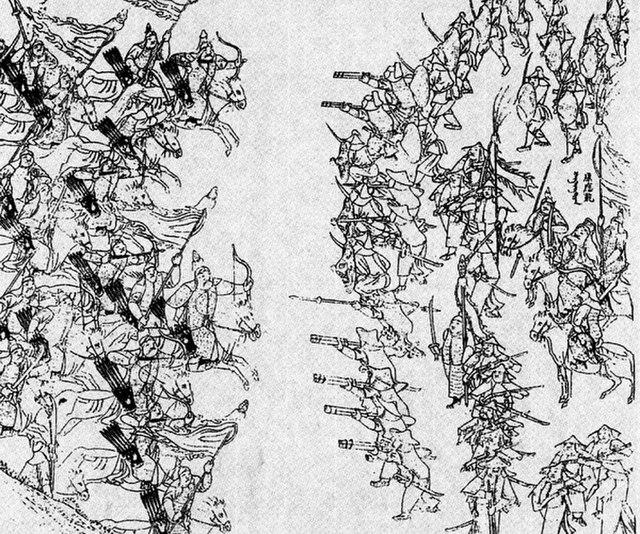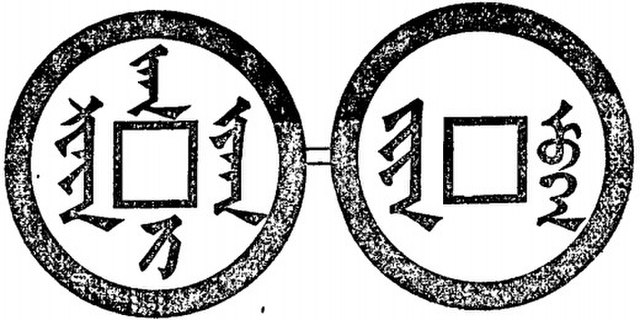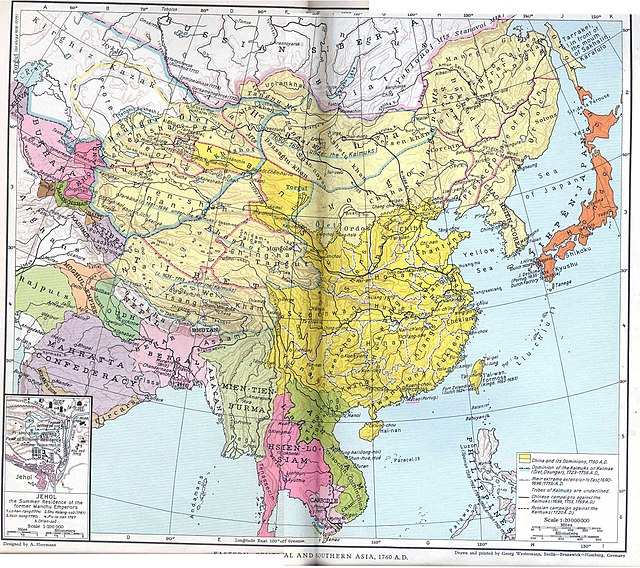The Daoguang Emperor, also known by his temple name Emperor Xuanzong of Qing, personal name Mianning, was the seventh emperor of the Qing dynasty, and the sixth Qing emperor to rule over China proper, reigning from 1820 to 1850. His reign was marked by "external disaster and internal rebellion." These included the First Opium War and the beginning of the Taiping Rebellion which nearly brought down the dynasty. The historian Jonathan Spence characterizes the Daoguang Emperor as a "well meaning but ineffective man" who promoted officials who "presented a purist view even if they had nothing to say about the domestic and foreign problems surrounding the dynasty."
Daoguang Emperor
The Daoguang Emperor in his study
The Daoguang Emperor inspecting his guards at the Meridian Gate of the Forbidden City
The Daoguang Emperor is presented with prisoners of the campaign to pacify rebels in Xinjiang at the Meridian Gate in 1828
The Qing dynasty, officially the Great Qing, was a Manchu-led imperial dynasty of China and the last imperial dynasty in Chinese history. The dynasty, proclaimed in Shenyang in 1636, seized control of Beijing in 1644, which is considered the start of the dynasty's rule. The dynasty lasted until 1912, when it was overthrown in the Xinhai Revolution. In Chinese historiography, the Qing dynasty was preceded by the Ming dynasty and succeeded by the Republic of China. The multi-ethnic Qing dynasty assembled the territorial base for modern China. It was the largest imperial dynasty in the history of China and in 1790 the fourth-largest empire in world history in terms of territorial size. With over 426 million citizens in 1907, it was the most populous country in the world at the time.
Manchu cavalry charging Ming infantry battle of Sarhu in 1619
Sura han ni chiha (Coins of Tiancong Khan) in Manchu alphabet
Dorgon (1612–1650)
The Qing conquest of the Ming and expansion of the empire








